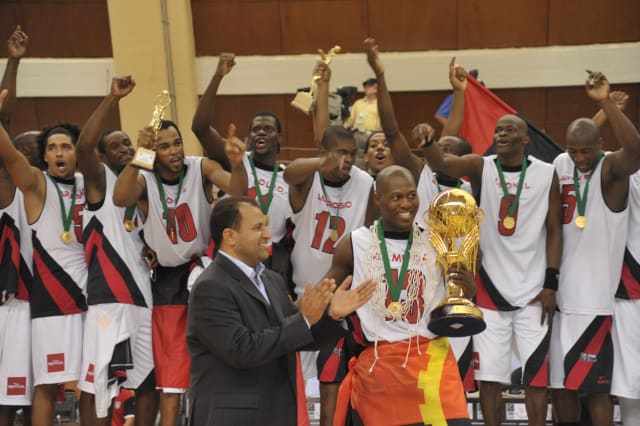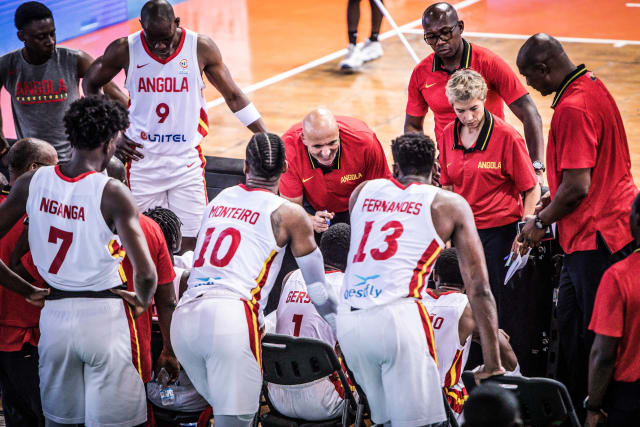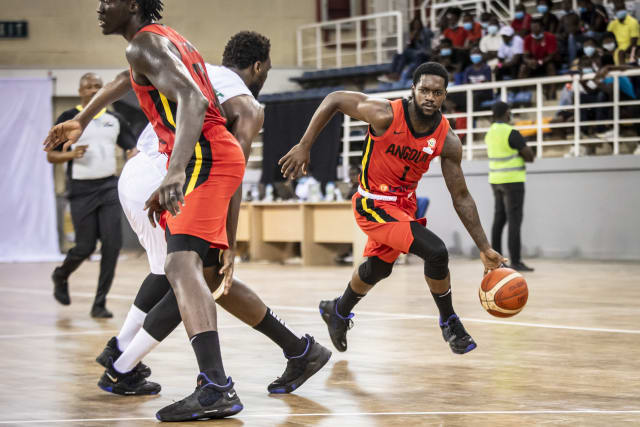Rebuilding Angola basketball legacy is still work in progress - Coach Claros
Since 2013 when Angola took the AfroBasket title at the expense of Egypt, the Southern African nation has found it tough and rough reclaiming the top spot.
ABIDJAN (Cote d'Ivoire) - Since 2013 when Angola took the FIBA AfroBasket title at the expense of Egypt in a final game score of 57–40, the Southern African nation has found it tough and rough reclaiming the top spot.
The closest Angola have come to winning the trophy after 11 titles - the most in Africa - was in 2015 when they fell to Nigeria, who won their first and only African title.
The legends of Angolan basketball at this time were beginning to fade away and other African nations were on the rise.
 Angola won six straight FIBA AfroBasket tournaments from from 1999 to 2009
Angola won six straight FIBA AfroBasket tournaments from from 1999 to 2009
After finishing 7th and 5th place finishes in 2017 and 2021, respectively, the process of rebuilding the team has been paramount.
At the end of the 2017 African Championship which saw Angola drop eight places to 23rd in the world and fall to third in Africa behind Nigeria and Tunisia; it was clear that the fall had become a reality.
One veteran Angolan forward, Reggie Moore stated then: "Now, it's all about getting the young guys experience and get ready for the next AfroBasket - that's the major tournament - and that's where we wanna show that we are still the dominant team in Africa." That was in 2017 and getting back on top has not been easy.

However, the rebuilding process is on and head coach Joseph Claros, a Spaniard, is championing it with a passion.
With experience in Europe, Asia, Africa, North and South America, he certainly knows his onion.
Announced as head coach in 2021, Claros is faced with the task of getting Angola back to its glory days when they ruled Africa.
He admitted to FIBA.basketball during the third window of the FIBA Basketball World Cup African Qualifiers in Abidjan that the job is difficult but achievable because it is a process.
The process according to him is gradual as the old players cannot be thrown out of the team as their experience is key for the younger players joining the ranks.
"Angola for a long time had a great group of talented players. All of them were playing in Angola at that time and the competition was very strong. In addition to that, they had one or two players who were dominating in Portugal and Spain and given these talents, Angola was just winning," he observed.
He notes that was the time that basketball stopped in Angola. "It stopped in way because all the teams came from one city and there was no second division basketball. There were provinces without basketball at that time, which stalled the growth of the game."

In rebuilding, the Coach says that what they are doing now is trying to develop and increase the number of licenses. "In Angola, we have about seven players playing abroad when compared to Nigeria and Senegal which have over 400. We're talking about still developing and at the same time need to increase the number of competitions as well as the minutes of the younger players. We need to build their confidence."
He says part of the rebuilding process, although the FIBA Olympic QualifyingTournament, AfroBasket 2021, and the FIBA Basketball World Cup African Qualifiers Windows, they are moving about 45 players in and out of the team and creating competition among them to get better.
"This gives us options. I don't want to create a 12-man roster that will win tournaments anymore because we need to build young players and the time starts now. In our team, we have about four players under the age of 24 years and we will continue to get more of them to build the team."
For Coach Claros, the qualification for the Second Round is gladdening and he hopes to continue the process.
FIBA